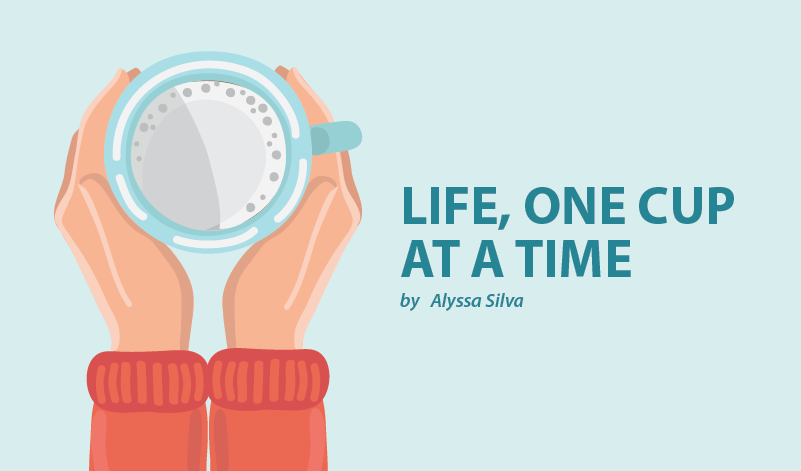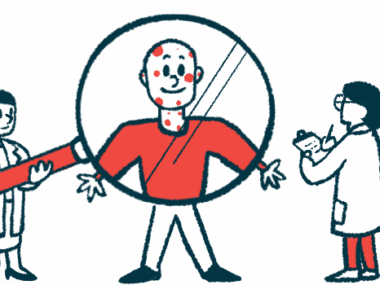When Hospital Roles Are Reversed
Written by |

“All right, Alyssa, let’s see how quickly we can do this,” I shouted to my assistant, who conveniently shares my name.
I had exactly one hour to get flowers at the local supermarket and get to the hospital to visit my grandfather before his physical therapy appointment. So I kicked it up a notch on my wheelchair and zoomed through the aisles, dodging customers and shopping carts as though I were in an expert level of Nintendo’s “Mario Kart.”
Arriving at the floral department in record time, I sought out the brightest and most cheerful arrangement that I thought would bring a little bit of happiness to a gloomy hospital room. My assistant agreed, and so we dodged the supermarket crowd back to the register and were out the door in time to spare.
Pulling into the parking lot, I looked up at the building and took a deep breath. In one way, I felt grateful, sitting there in front of a hospital with my healthy lungs that allowed me to inhale and exhale without a struggle. But in another twisted, uncomfortable, and illogical way, this situation didn’t feel aligned with what I’ve grown accustomed to with SMA.
In my universe, I was usually the one who was supposed to be entering a hospital and being admitted for yet another respiratory infection. I was the one who was supposed to be fighting for my life in a hospital bed and hating the food and having a visitor pop in with flowers to try and lift my spirits. But in this universe, the reality was that the roles were reversed, and I wasn’t sure how to react.
I entered my grandfather’s room feeling unsettled. Despite having battled and conquered every illness in my life so far, certain factors still trigger painful memories. The fluorescent lights that give everything a washed-out hue, the sterile aroma that lingers in the hall, the doctors and nurses in scrubs who hurry on their way to their patients. Seeing my grandfather and remembering what it’s like to be in his position was all too familiar.
But seeing and spending time with him also gave me a newfound perspective.
I could never fathom what it was like to be on the other side of the hospital bed, to lose sleep over loved ones who are not well, to sit by the bedside and watch them suffer, to beg them to have just a few more bites of food to make them stronger, and to constantly reassure them that all would be well. And, through prayer and perseverance, all would return back to normal. I had a general idea, but I don’t think you ever truly realize the extent of something like that until you experience it firsthand.
My life has been spent looking up at faces leaning over hospital rails. But looking into the eyes of a man whose many stitches on his head tell one miraculous story, I’ve realized that being the person on the other side is, in fact, just as difficult as being the patient. The pain and anguish may be defined in different terms when comparing patients and loved ones, but nonetheless, it’s still there. And it doesn’t ever truly leave until you see the nurse hand over those lengthy discharge papers.
Gaining this new perspective has opened a space for more gratitude. When I see how much my parents and loved ones give and sacrifice for my well-being during every hospital stay, my heart is always so full.
But now, after experiencing both sides of the situation, I’m reminded to deepen that feeling. I’m reminded to hold on tight to those who lend a helping hand, because these people love you fiercely and want to help you conquer every battle. Even if it takes eating terrible hospital food with you to show their solidarity, they want to see you win.
***
Note: SMA News Today is strictly a news and information website about the disease. It does not provide medical advice, diagnosis, or treatment. This content is not intended to be a substitute for professional medical advice, diagnosis, or treatment. Always seek the advice of your physician or other qualified health provider with any questions you may have regarding a medical condition. Never disregard professional medical advice or delay in seeking it because of something you have read on this website. The opinions expressed in this column are not those of SMA News Today or its parent company, Bionews Services, and are intended to spark discussion about issues pertaining to spinal muscular atrophy.





Leave a comment
Fill in the required fields to post. Your email address will not be published.